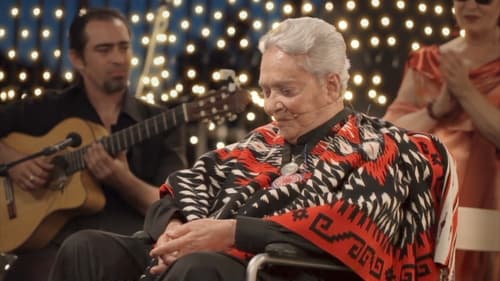Natalia Bruschtein
출생 : , Buenos Aires, Argentina

Editor
An extraordinary film about memory, and specifically the fading memory of an 86-year-old political activist who has fought tirelessly against historical amnesia and for justice in Argentina. The director’s grandmother, Laura Bonaparte, was one of the founders of the Mothers of the Plaza de Mayo, formed during the 1970s by women whose children and family members had been disappeared by the Videla military dictatorship. Laura herself lost three children and their partners, including the director’s parents. Today, after a lifetime battling that the disappeared never be forgotten, Laura faces her own struggle to remember.

Screenplay
An extraordinary film about memory, and specifically the fading memory of an 86-year-old political activist who has fought tirelessly against historical amnesia and for justice in Argentina. The director’s grandmother, Laura Bonaparte, was one of the founders of the Mothers of the Plaza de Mayo, formed during the 1970s by women whose children and family members had been disappeared by the Videla military dictatorship. Laura herself lost three children and their partners, including the director’s parents. Today, after a lifetime battling that the disappeared never be forgotten, Laura faces her own struggle to remember.

Director
An extraordinary film about memory, and specifically the fading memory of an 86-year-old political activist who has fought tirelessly against historical amnesia and for justice in Argentina. The director’s grandmother, Laura Bonaparte, was one of the founders of the Mothers of the Plaza de Mayo, formed during the 1970s by women whose children and family members had been disappeared by the Videla military dictatorship. Laura herself lost three children and their partners, including the director’s parents. Today, after a lifetime battling that the disappeared never be forgotten, Laura faces her own struggle to remember.

Editor
Chavela Vargas and Federico García Lorca are the main characters of this story. Poetry and music are the places of their meetings. Chavela explains when he lived in the same room where Federico García Lorca lived decades ago, was visited by a bird that contained the soul of the Spanish poet. In her last year of life, Chavela fulfills her last wish: to make a tribute to Spanish poet and finally meet him in the ranks of death. The Nightingale and the Night is a documentary that chronicles the transition from Chavela life to death, her union with Federico, dissolving the borders between reality and dreams.

Screenplay
Rosario is the portrait of the intimate life of a woman. Her son disappeared in Monterrey City in 1975, changing her life drastically. She has become a tireless fighter on the search of her son, devoting her whole life to Human Rights in Mexico.

Screenplay
When victims who have suffered those crimes, turn to justice in order to reconstruct their lives and their dignity, they are invariably confronted with a complex framework of political and economic interests operating against them, generating oftentimes insurmountable obstacles. In their efforts, they discover that principles such as Universal Justice may be their only path to overcome these obstacles or to accelerate judicial processes. The story repeats itself at different moments, in different places around the globe, under the same sun.

Editor
Adaptation and unification in a single story of several stories by the writer Rubem Fonseca, where the theme of violence in contemporary society is explored.

Sound Mixer
Rosa is a Mexican woman who, at the age of 17, migrated illegally to Austin, Texas. Some years later, she was jailed under suspicion of murder and then taken to trial. This film demonstrates how the judicial process, the verdict, the separation from her family, and the helplessness of being imprisoned in a foreign country make Rosa’s story an example of the hard life of Mexican migrants in the United States.

Director

Director







